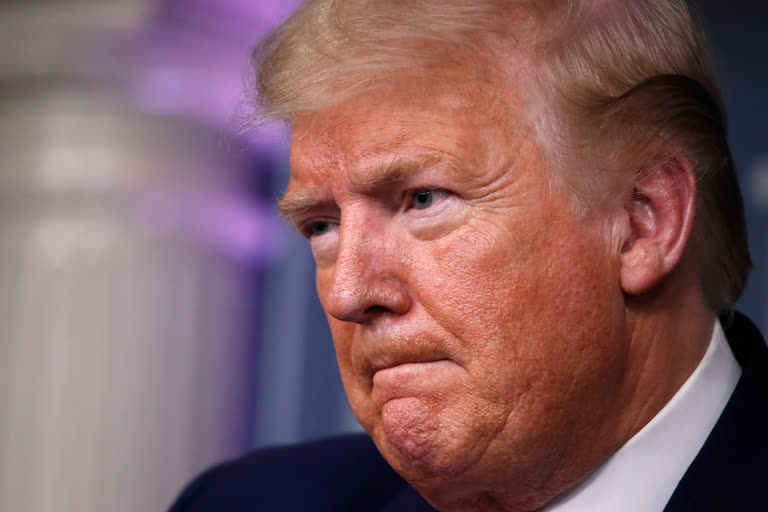Washington: US President Donald Trump has resisted calls to issue a national stay-at-home order to curb the spread of the new coronavirus despite his administration's projections that tens of thousands of Americans are likely to be killed by the disease. One by one, though, states are increasingly pushing shutdown orders of their own.
The coronavirus pandemic has infected more than 9,35,957 and killed over 47,245 people across the world. Nearly 1,94,286 people have recovered so far.
Trump on Wednesday said that he wanted to give governors' "flexibility" on whether a stay-at-home policy is the best option for their constituents, but acknowledged that he's looking at limiting air and rail travel between hot spots within the US.
Read also: COVID-19: Burials jump in Latin America's largest cemetery
The president remained hesitant to press a unified policy even after the White House released "sobering" new projections on Tuesday that 1,00,000 to 2,40,000 Americans will likely succumb to the coronavirus even if current social distancing guidelines are maintained.
Read also: Social distancing: Nurse shares newborn's glimpse inside car
US Surgeon General Jerome Adams on Wednesday said that the nation's federalist system leaves much of the authority on how to properly respond to catastrophes to individual state governors and local officials.
"We trust the governors and the mayors to understand their people and understand whether or not they feel like they can trust the people in their states to make the right decisions," Adams said on ABC's "Good Morning America."
On Wednesday alone, five more states — Florida, Georgia, Mississippi, Nevada and Pennsylvania — added or expanded their stay-at-home orders.
But the invocation of federalism in the midst of a crisis that threatens a nationwide body count on par with some of the deadliest American wars suggests that Trump and his advisers are cognizant of the political ramifications of their response.
Republican governors in states like Florida, Texas and Nebraska have questioned the necessity of applying strong social distancing rules to rural or exurban areas that haven't reported much evidence of the virus so far.
The lack of a unified, 50-state response also collides with evidence emerging that coronavirus infections are being spread by people who have no clear symptoms, complicating efforts to gain control of the pandemic.
A study conducted by researchers in Singapore and published by the US Centres for Disease Control and Prevention on Wednesday is the latest to estimate that around 10% of new coronavirus infections may be spread by people who were infected with the virus but not experiencing symptoms.
Even while deferring to governors, the Trump administration has issued guidelines that have urged Americans to work from home if possible, cancel on-site instruction at schools, and avoid large gatherings. The resistance to a more robust response came even as vice president Mike Pence said that White House models for the coronavirus toll show the country on a trajectory akin to hard-hit Italy.
AP



